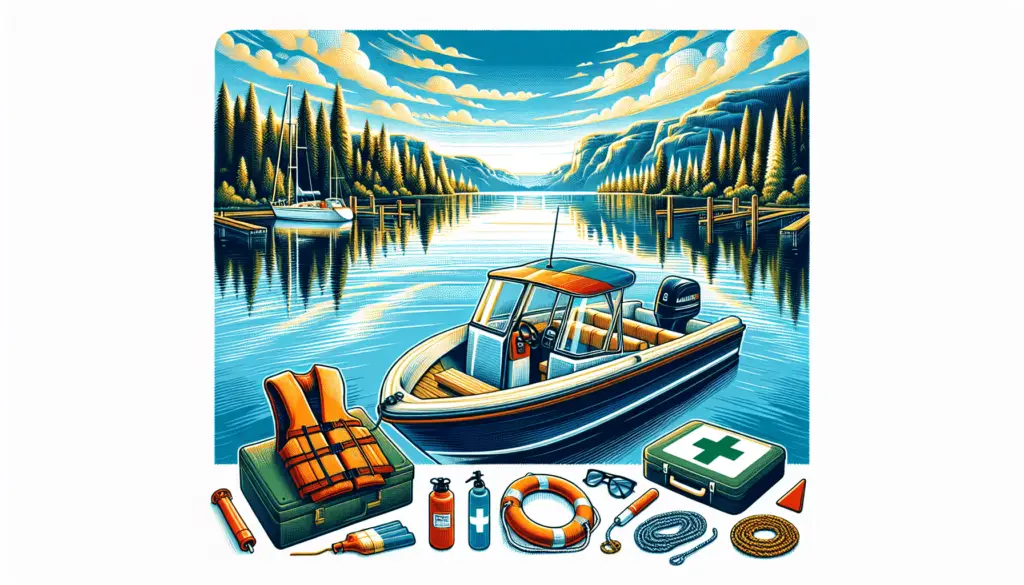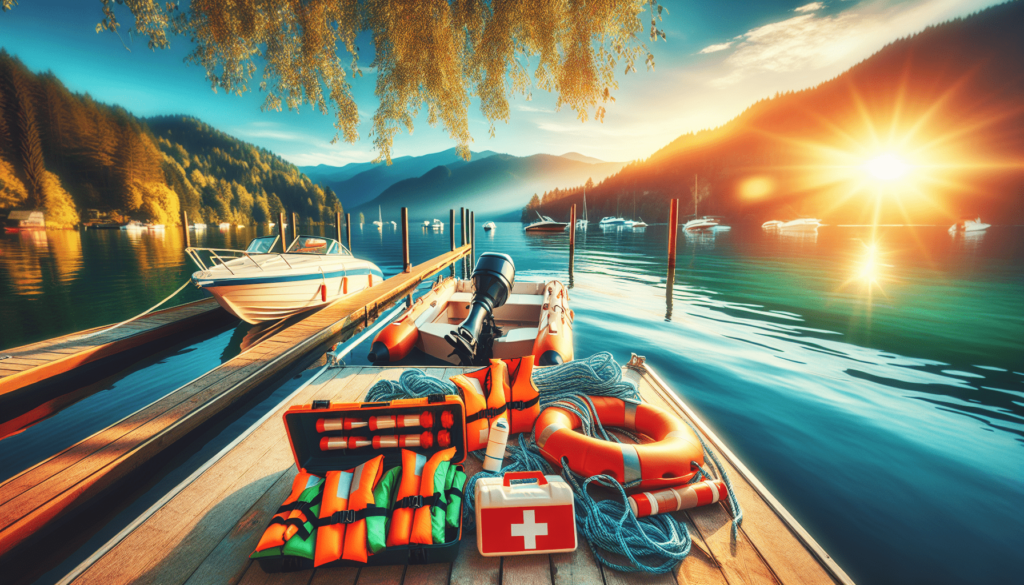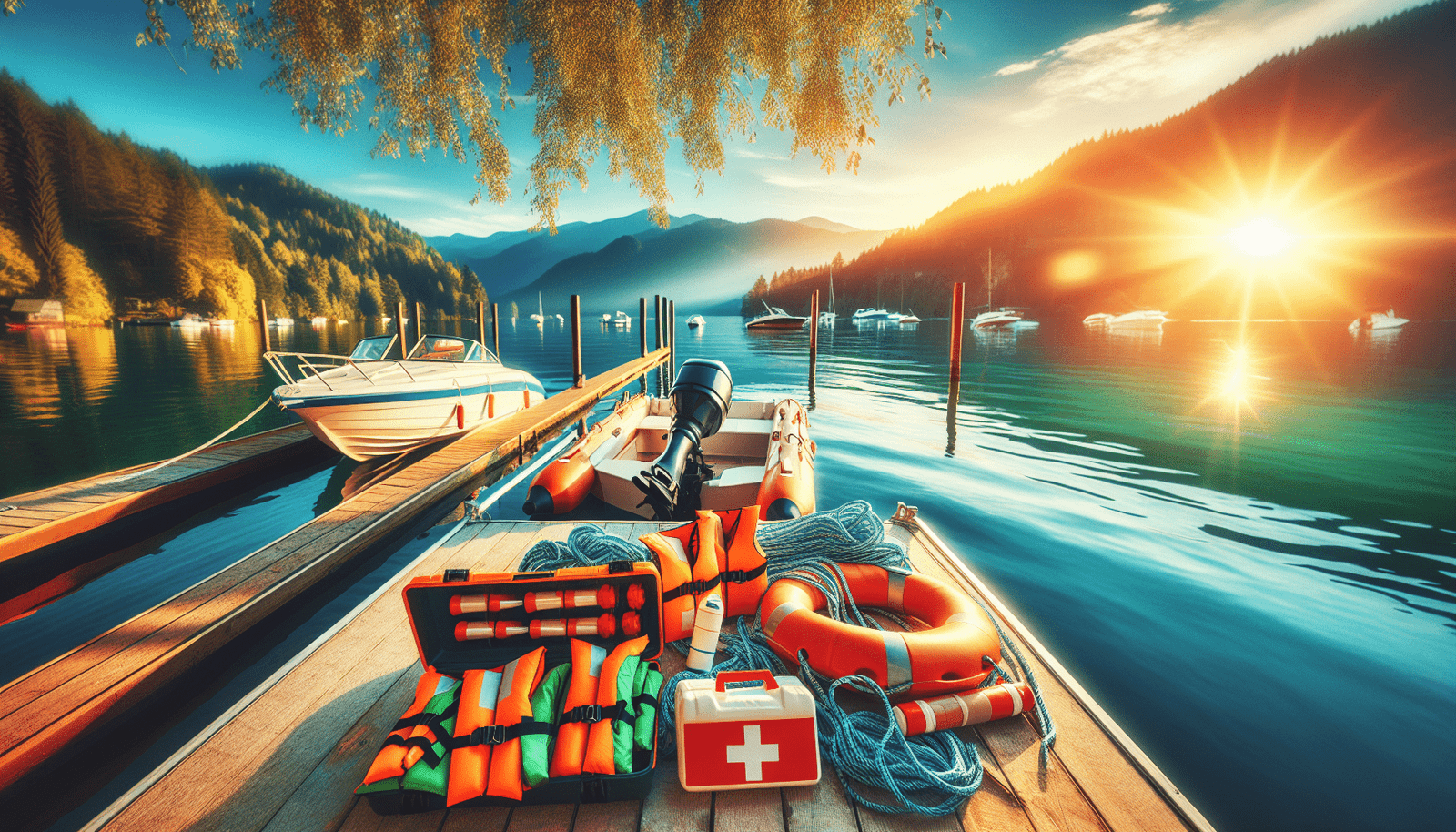Imagine yourself slicing through cobalt waters, a gentle breeze dancing in your hair, and the promise of adventures waiting at every ripple. “Boating Safety Checklist: Preparing for a Safe and Fun Day on the Water” escorts you through the pivotal steps for an unforgettable nautical journey. Filled with insider tips and shrewd insights, this article ensures that you are expertly armed with the ultimate knowledge base to keep your sea legs steady, your crew secure, and your spirits soaring, making every moment on the majestic water a sheer delight. Enjoy the mesmerizing mirage of discovery and exploration while safeguarding against potential pitfalls. And remember, safety doesn’t spell boredom; it assures that the laughter and excitement carry on unimpeded.
Understanding the Importance of Boating Safety
Bright sunshine, deep turquoise waters, the splash of waves against the hull—there’s nothing quite like the sensation of being out at sea. But like all beautiful things, boating requires not just an adventurous spirit, but also an undiluted focus on safety.
Highlight on the Priority of Safety During Boating
While the lure of the water may be irresistible, your enthusiasm shouldn’t compromise with safety. The latter isn’t just wearing a life jacket and steering clear from precarious weather; it is knowing your boat inside and out, understanding the laws and guidelines and being equipped for emergencies.
Present Statistical Data on Boating Accidents
Numbers never lie and statistical data on boating accidents paints a clear picture of why the priority of safety is indispensable. Hundreds of boating accidents occur annually, each telling its grim tale of human error, lack of prevention and disregard for safety regulations. Just a small fraction are the result of unavoidable circumstances.
Discuss the Positive Implications of Safe and Responsible Boating
Safe boating is responsible boating. It not only protects you and your fellow passengers, but it also contributes to a safer boating community. By following guidelines and prioritising safety, you can help reduce accidents and make the water an enjoyable place for everyone.
Knowing Your Boat
You steer your automobile with confidence only because you understand its mechanisms. The same applies to your boat.
Detailed Explanation on the Specifications and Operating Procedures of the Boat
While every boat comes with its own design and features, understanding its specifications, controls and operating procedures is crucial. Knowing your boat allows you to take charge and handle any situation with confidence.
Discussion on the Importance of Understanding its Safety Features and Accessories
Your boat comes with a catalogue of safety features and accessories. Understanding these is just as important in ensuring a safe boating experience. A life jacket is only useful when worn properly, an anchor only beneficial when used correctly, and flares only helpful when ignited in the right way.
Highlight Reminder to Read and Fully Grasp the Boat’s Manual
Every boat is accompanied by a manual, a little book usually left neglected. Spare time to read and understand it. From the functioning of your boat to troubleshooting, it’s a goldmine of information that could come handy in times of crisis.

Weather and Water Conditions
An overlooked cloud, an ignored forecast—weather conditions may easily slip your notice. But remember, they can dictate the safety and success of your boating adventure.
How to Check and Understand Weather Forecasts
Keep an eye on the local and regional weather forecasts. Watch out for storm alerts and abrupt shifts in weather. Maps and apps are at your fingertips to help predict the weather before setting out.
Discussion on Predicting Water Currents and Tides
Recognising and predicting water currents, tidal changes, and wave patterns can give you an edge while navigating. Courses and instructional books might be useful for this.
Explanation on How Weather and Water Conditions Affect Boating Safety
Severe weather can impact visibility, create high waves, and increase the risk of accidents. Understanding how weather and water conditions can influence your boating can ensure both safety and enjoyment.
Boating Safety Equipment
Just as a firefighter never rushes into a blazing building without his gear, you should never head to sea without your safety equipment.
Enumerate and Discuss the Necessary Safety Gear and Equipment
The gamut of safety gear for boating includes life jackets, fire extinguishers, first aid kits, flares, and boat hooks, among others. Each of these plays a pivotal role in ensuring your safety while onboard.
Proper Care and Storage of Safety Equipment
Safety equipment needs attention. It requires proper storage and regular check-ups. Damaged or outdated equipment could fail when you need it the most.
Importance of Regularly Checking and Updating Safety Equipment
Never compromise on the condition and quantity of your safety equipment. Neglected, lapsed items won’t help in the hour of need. Regularly updating and checking equipment ensures it will work efficiently when required.

Navigation and Communication
Navigation and communication are the pillars of a secure boating experience. Well honed skills in both can turn a potentially disastrous situation around.
Techniques on Using Maps, Compass, and GPS for Navigation
It’s crucial you know how to navigate your path using traditional techniques with maps and compasses, as well as modern GPS systems. These vital tools go a long way in ensuring your safe return to land.
Understanding Distress Signals and Communication Tools
From flares to VHF radios, understanding and making effective use of distress signals and communication tools can mean the difference between being rescued or left adrift.
Emphasize on the Importance of Maintaining Proper Communication and Coordination
Maintaining open lines of communication with authorities and with people who know your whereabouts is essential when disaster strikes. It ensures rescuers are aware and can get to you in time.
Emergency and First-Aid Procedures
Any adventure comes with risks and boating is no exception. Preparing for emergencies can make a world of difference.
How to Create an Emergency Plan
Understanding a crisis situation, staying calm, and executing a planned response could be the difference between chaos and survival. An emergency plan may save the day.
Discuss the Importance of First Aid Knowledge and Kit
A well-stocked first aid kit and the knowledge to administer basic medical aid can combat injuries until professional help arrives. This knowledge is just as central to boating safety as a life jacket.
Highlight Steps on What to Do During Unexpected Situations
Knowing what to do when things go wrong is a key part of safety preparations. Thoroughly rehearse the steps to take in various scenarios such as man overboard, running aground, or a fire onboard.
Boating Laws and Regulations
Like the laws of the road, the sea too has its regulations. Respecting these are surefire ways of ensuring a safe and responsible boating experience.
Understanding the Local Boating Laws and Regulations
Familiarize yourself with the local laws and regulations. And, remember, abiding by these rules not only keeps you safe but also guards the rights and safety of others on water.
Discuss Penalties for Non-Compliance
Non-compliance with boating laws carries penalties ranging from fines to imprisonment. Don’t let ignorance or negligence put a damper on your adventures or put lives at risk.
Importance of Responsible and Law-Abiding Boating
Responsible boating, adherence to rules, and respect for others on the water are not just lawful duties, they are the pillars of a vibrant and safe boating community.
Boating Skills Training
Practice breeds perfection – be it sailing, anchoring, docking, or manoeuvering. Formal training can elevate your boating experience from adventurous to truly exhilarating.
How to Acquire Boating Skills through Formal Training
Numerous institutions provide structured lessons on boating skills. Formal training infuses confidence and competence, adding a robust layer of safety to your sea ventures.
Discussion on the Benefits of Continuous Learning and Practice
Even the most seasoned sailors continuously learn and practice. That’s how they stay ahead of the waves. Continuous learning means you keep evolving and honing your skills, enhancing your understanding of safety and boating.
Highlight on the Value of Mastering Boating Techniques
Mastering boating techniques is an invaluable asset. It not just allows you to confront challenges head-on, but also opens new horizons of exploring the waterways.
Fuel and Boat Maintenance
A well-maintained boat is the best guarantee of a smooth sailing experience.
Discuss Proper Fuel Handling and Storage
Poor fuel handling can lead to fires, explosions, or engine damage. Learn the right methods of storing and handling fuel, and ensure your boat remains sea-worthy.
Detail Regular Maintenance Tasks for the Boat
Regularly assess your boat’s condition. Maintenance tasks include engine inspections, checks for leaks, replacing worn-out parts, and even general cleanliness. A well-maintained boat is a safer boat.
Highlight the Significance of a Well-Maintained Boat to Safety
Routine check-ups and regular maintenance go a long way in preventing untimely failures and catastrophes. A well-maintained boat will not let you down when the seas get rough.
Alcohol and Boating
Boating and alcohol are a hazardous mix. Here’s why alcohol and boating simply don’t mix.
Explain the Risks of Drinking Alcohol While Boating
Alcohol impairs judgment, balance, and coordination, the very qualities needed for safe boating. Fatal accidents often result from drunken boating. Keep alcohol off the boat to ensure a safe journey.
Discuss Laws Governing Alcohol Use on Water
Like on road, drinking while operating a boat is legally prohibited. Penalties range from fines and suspensions to imprisonment.
Stress on Zero Alcohol Policy for a Safe Boating
Boating is thrilling as it is. Alcohol only complicates things and heightens risks. Adopt a zero-alcohol policy when you set sail. The sea will thank you, and so will your passengers and fellow boaters.
When safety gets the attention it deserves, boating transforms from just another risky adventure to an sinfully exhilarating and secure affair. So, indulge in the spirit of the sea, but with caution and respect. That is the true essence of boating. Happy boating!

